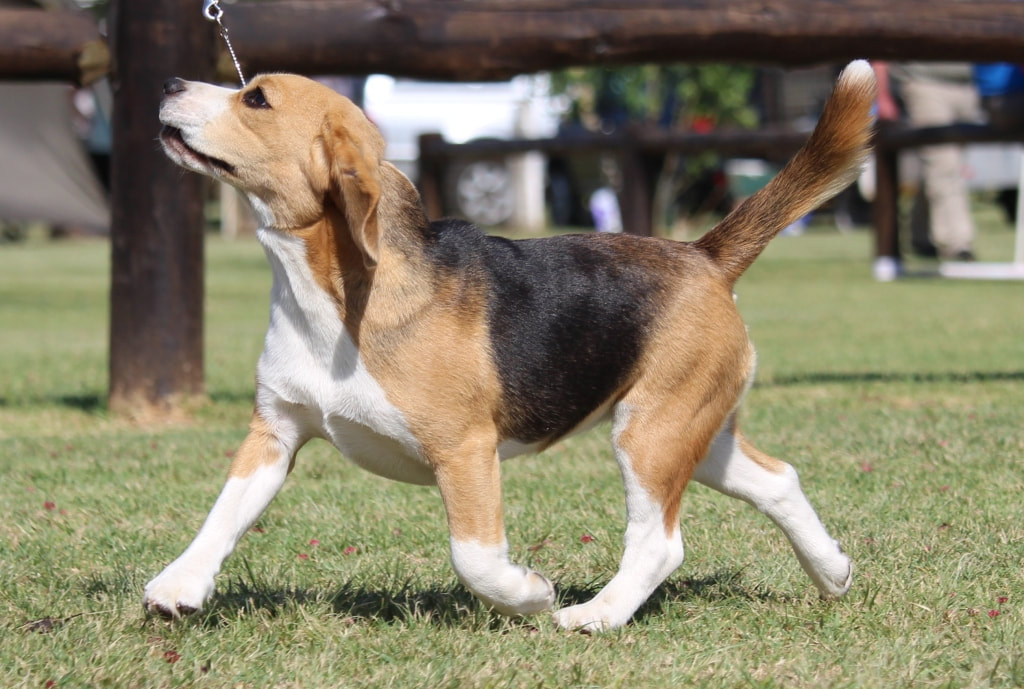|
How did it all begin?
Prosperous, leisure-seeking Victorians in nineteenth-century England found a passion for exhibitions and ‘instructive entertainments'. And so it was that the first dog show was organized in Newcastle-on-Tyne on 28 and 29 June 1859, comprising an entry of about sixty Pointers and Setters. Observers of present-day rules will be amused to discover that one of the judges of the Setters took first prize in Pointers, while one of the Pointer judges took first prize in Setters! It wasn't long before the quaint custom of comparing dogs to other dogs and their respective breed standards, spread around the world, and the sport became steadily more organized and brought many, many more enthusiasts on board. In South Africa , the first dog club to be established and hold its first show was the South African Kennel Club of Port Elizabeth, in 1883. The South African Kennel Club of Cape Town followed shortly thereafter in 1889. These clubs subsequently changed their names to the Port Elizabeth Kennel Club and the Cape Town Kennel Club respectively and, together, served as foundation for the South African Kennel Club (SAKC). This organization was intended to serve as registration and administrative controlling body for dog matters throughout South Africa and, as it grew in strength, changed its name in 1919 to the South African Kennel Union (SAKU) and finally, in 1964 to the Kennel Union of Southern Africa (KUSA). KUSA is one of the world's oldest kennel unions. Several dog clubs emerged during the latter part of the nineteenth century, but it was only the Port Elizabeth Kennel Club that remained affiliated to KUSA continuously since its inception. Most clubs came and went and returned under new formats and management, such as Transvaal, East London , Grahamstown and Queenstown Kennel Clubs in 1895, followed in 1899 by the S.A. Collie and Sheepdog Club and the Durban Kennel Club. Some, like the Cradock and King William's Town Kennel Clubs vanished forever. With the cropping of dogs' ears still prevalent in a few countries, it's interesting to note that, at a meeting of the SAKC in 1899 (before the Anglo-Boer War), it was resolved to cease the cropping of ears and any dog presented for competition after that date would be disqualified. What's the point of dog shows? The search for the perfect show dog (which doesn't exist) opens doors to a lifetime of learning in a social sport that combines the excitement of competition with the sheer enjoyment of seeing beautiful dogs. It is a world with its own jargon and etiquette and many levels of experience and knowledge. For many, the presentation of quality dogs is a hobby, but for some, this exciting social life often leads to interesting careers. Showing dogs is addictive. Dog shows are essentially intended to evaluate breeding stock against a written breed standard. Therefore, an award is seen as confirmation that one's breeding programme is on track. The judge examines the dog's conformation (anatomical structure and physical appearance) and gait (movement) and gives awards according to how closely the dog compares to the judge's mental image of the ‘perfect' dog, as defined by the official breed standard. Dog shows are a process of elimination. Once the judge has decided the best representative in each breed according to its individual breed standard, a group of ‘Best of Breeds' are evaluated against each other to find the winners in the group. Finally, the winners of each of seven groups compete against each other to find the ‘Best in Show'. Spectators often wonder how different breeds can be compared to each other in the group competition and finals – how does one compare a Great Dane with a Chihuahua , for example? The judge's role, in this instance, is to find the specimen that most closely resembles its own breed standard and that also displays a good level of health and well-being and proper temperament. Entry into conformation (breed) shows in South Africa is restricted to: • purebred dogs registered with the Kennel Union of Southern Africa • breeds recognized by the Kennel Union of Southern Africa • dogs over 6 months of age • entire dogs (ie. not neutered) Showing dogs is a subjective sport and actually - regardless of what the experienced old cynics will tell you - mostly unpredictable. It's very possible that your dog will win one day and stand last in its class the next day. You've heard it before and you'll hear it many times in the future – regardless of the judge's opinion, you'll always be taking home the best dog(s) in the world! Text adapted from www.showdogs.co.za. Thanks to Joy McFarlane. |
Shows in The Beagle Association
As the Beagle Association of Gauteng, we pride ourselves in hosting two breed shows a year, one being an open show and the other a Championship (Qualifying) show. Keep an eye on the events / results pages for more!
Please contact us if you would be interested in showing your dogs! We will gladly assist!
Please contact us if you would be interested in showing your dogs! We will gladly assist!
Copyright 2024
Site sponsored and managed by Shutter Paws Canine Photography
Site sponsored and managed by Shutter Paws Canine Photography
